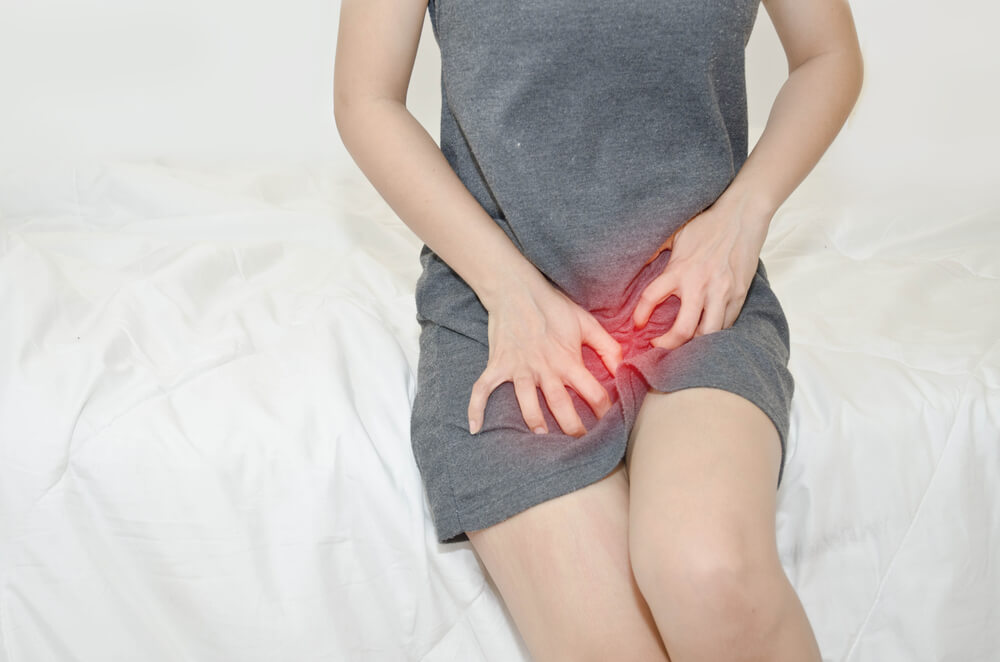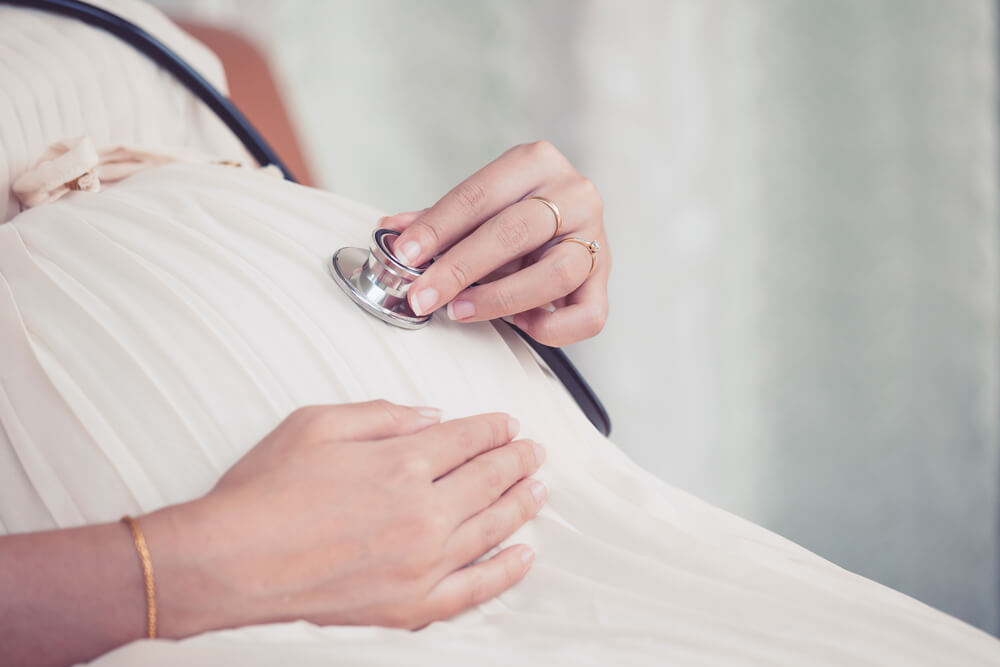Yeast Infection During Pregnancy
As a woman, chances are you have experienced a yeast infection at one point in your life. Chances are, you may not be aware that pregnancy with a yeast infection is fairly common. University Park OBGYN is happy to share valuable tips about treating a yeast infection while pregnant.
What is a Yeast Infection?
The most common bacteria, Lactobacillus acidophilus, help in keeping yeast and other organisms under control in the vagina. A yeast infection, also called candidiasis, occurs when healthy yeast in the vagina grows out of control. When our pH balance is disrupted, this overgrowth of yeast may lead to an infection and cause symptoms.
Yeast infection during pregnancy and yeast infection in early pregnancy is common because the increase in estrogen during pregnancy can throw off your pH balance. This is especially common in the second trimester. Although yeast infection while pregnant is unpleasant, thankfully, it will not harm your health nor your baby’s health. On the bright side, it is simple to treat yeast infection pregnancy symptoms.
What Are Symptoms of a Yeast Infection?

Signs and symptoms of a vaginal yeast infection can vary. Here are some things you may experience and get checked out by your provider:
- Itching
- Burning
- Rash
- Redness and/or swelling in the vulva
- Pain during intercourse
- Soreness or pain in the vulva
- Thick, white vaginal discharge resembling cottage cheese in appearance
In addition to vaginal signs and symptoms, an overgrowth of yeast or candida can also occur in the mouth, known as oral thrush. In infants, the infection may present as a red, persistent, irritating diaper rash. Like any infection, it is recommended to have your doctor examine your symptoms to determine the cause.
How is a Yeast Infection Diagnosed?
After receiving a physical exam and reviewing signs and symptoms with your physician, the diagnosis will be confirmed or denied through a sample of vaginal discharge. Your doctor will check the sample for yeasts that cause infections, and more harmful types of yeast infections will also be ruled out during this time.
What Can Cause Yeast Infections During Pregnancy?
While pregnancy with a yeast infection is common, it is helpful to know what may cause it. Here are some factors that may contribute to an overgrowth of yeast leading to yeast infection early pregnancy:
- Normal changes in hormone levels
- A reaction to your partner’s natural yeast or bacteria
- Pre-existing conditions that weaken the immune system, such as HIV
- Taking immunosuppressant medication, like steroids
- Taking antibiotics, which can disrupt the vaginal PH
- Birth Control Pills
- Being overweight
- Diabetes
- Allergic reaction in the vaginal area
- STD’s, such as chlamydia and gonorrhea
- Another common infection called BV, or bacterial vaginosis
Treating a Yeast Infection During Pregnancy
Pregnancy with yeast infection symptoms can be uncomfortable and inconvenient, but you can safely treat these symptoms with over-the-counter vaginal creams and suppositories, such as miconazole or clotrimazole-containing products. Even if symptoms seem to be clearing up, be sure to finish the full course of treatment for your infection, and be sure to read and follow all instructions.
Yeast infections can cause persistent itching, but remember that scratching will only make things worse and more irritated down there. During pregnancy, yeast infections may not be treated with oral fluconazole tablets, as this has been shown to cause birth defects. Consult your doctor to confirm whether or not your pregnancy with yeast infection symptoms needs treatment before taking any medications. If there is no improvement within three days, or if symptoms worsen or return after treatment, contact your healthcare provider.
How To Prevent Yeast Infections
Consistently practicing good genital hygiene is the key to preventing vaginal yeast infections. Here are some ways to avoid yeast infection pregnancy symptoms:
- Avoid wearing tight bottoms and undergarments made of synthetic materials, especially overnight.
- Wear loose, cotton underwear to keep things dry and airy in the vaginal area
- Change out of workout garments, sweaty clothing, and wet swimsuits immediately.
- Avoid scented soaps and body washes, especially in the vaginal area
- Refrain from using scented toilet paper and scented sanitary napkins and tampons
- Always wipe from front to back
- Do not douche, especially later in pregnancy
- Avoid added sugars in your diet
- Eat probiotic-rich foods, such as yogurt
- Maintain a healthy diet filled with fruits, vegetables, protein, and whole-grains
These methods of yeast infection pregnancy symptoms are avoidable when you take the proper precautions. But remember, there is usually no cause for concern because yeast infections during pregnancy are common and treatable overall.
How Are Recurring Yeast Infections Treated?
Because of the shift in hormones during pregnancy, you may be more susceptible to recurring yeast infections. Recurrent vulvovaginal candidiasis is when four or more yeast infections occur in a year. If you are experiencing recurrent candidiasis, we recommend consulting your physician to rule out any health conditions.
The pregnancy itself may simply be the root of infection, and after delivery, they should cease. Oral “azole” drugs effectively reduce recurrent infections, but this option is only available after delivery, as oral antifungals are not safe or advised methods of treatment while pregnant.
Complications of Vaginal Yeast Infection
Thankfully, yeast infections that occur during pregnancy rarely have harmful effects. In more extreme cases, an infection may cause burning during urination and fissures or sores on the vulva or vagina.
Yeast infections may be passed to your baby during delivery. In infants, yeast infection presents in the mouth and/or diaper area. Rarely, a yeast infection can lead to serious complications in an infant’s body or heart, as their immune systems are not yet equipped to fight infection. This is most often seen in infants with underlying immune conditions or infections.
In pregnant women with conditions that weaken the immune system, such as HIV, a yeast infection may cause systemic infection or complications. This is why, even if you believe it to be a simple overgrowth of yeast, yeast infection early pregnancy is best treated under the supervision of a doctor.
When To Call Your Doctor

If you are experiencing a vaginal yeast infection during pregnancy and any of the following symptoms occur, we recommend advising your doctor for a more comprehensive treatment plan.
- If you are experiencing pain in the lower abdomen coupled with vaginal discharge and fever, this may be a sign of PID, and treatment will be necessary.
- If you are pregnant and begin to experience signs and symptoms of a UTI, or urinary tract infection, or other vaginal infection
- Unusual vaginal itching
- Unusual vaginal discharge, especially if a foul odor accompanies it
- Pain occurring with urination or penetration
- Symptoms persist after initial treatment and medication
- If symptoms recur within a couple of months from the first infection
Advice From Our Practice
At University Park OBGYN, we are fully equipped to guide you through the comprehensive care you deserve. From treating a pesky yeast infection while pregnant to delivering your infant, we guarantee thorough, compassionate care. Give us a call or visit our website today to learn more about the various services we offer in gynecological, preconception, obstetric, and postpartum care.
We look forward to hearing from you!


